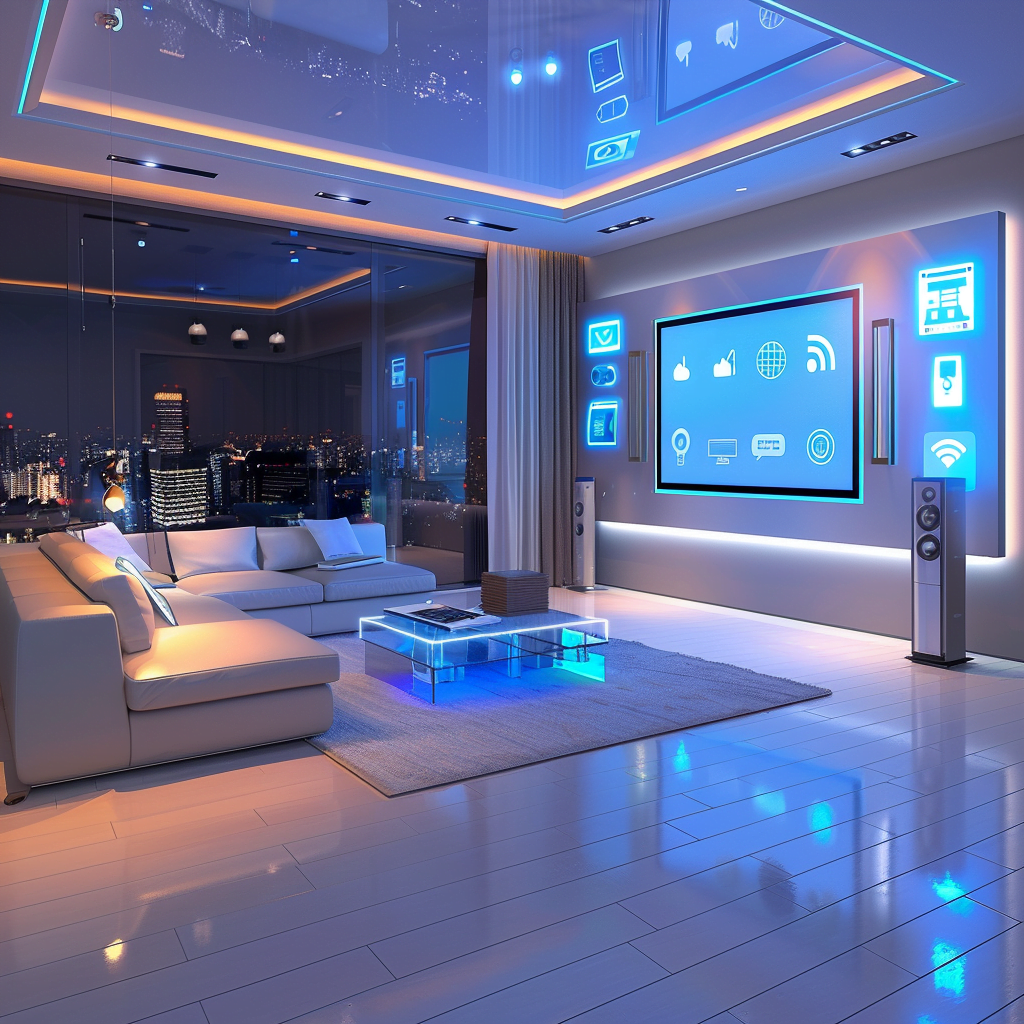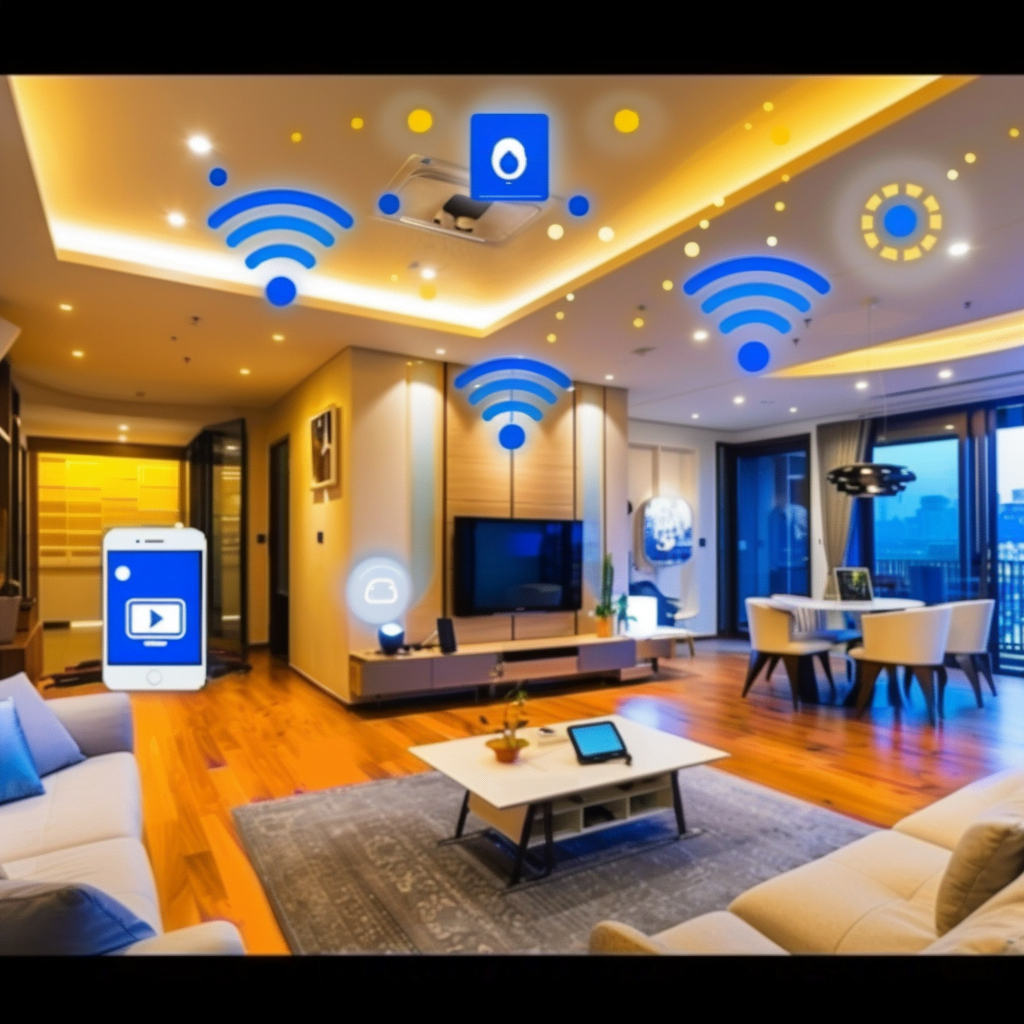As we navigate a world increasingly driven by technology, the way we manage our homes is undergoing a significant transformation. Smart home automation emerges as a pivotal trend, embedding advanced tech solutions into our daily living environments. The pivotal question that arises for homeowners and tech enthusiasts alike is: Is smart home automation an investment in your future? This article explores the myriad ways that integrating smart technologies into your home can pay dividends, from enhancing property values and improving energy efficiency to ensuring heightened security and personalized convenience. Here, we explore why smart home automation is not merely a contemporary luxury but a strategic investment that could shape the future of home living.
Elevating Everyday Convenience and Enhancing Comfort
Smart home technology streamlines daily tasks through automation and remote control capabilities, fundamentally enhancing living standards. Imagine adjusting your home’s climate from your smartphone before arriving home or programming your blinds to open with the morning sun—these conveniences are no longer futuristic fantasies but present-day realities. Automated systems can learn your preferences and routines to offer a seamlessly comfortable and efficient living experience.
Fostering Energy Efficiency and Cost Savings
One of the most compelling advantages of smart home automation is its ability to significantly reduce energy consumption and lower utility costs. Smart thermostats and lighting systems optimize energy use by adjusting settings based on occupancy and natural light levels. By automating the operation of heating, cooling, and lighting, homeowners can see a reduction in their energy bills.

Additionally, the use of energy-efficient appliances can be maximized through intelligent scheduling, further enhancing savings.
Enhancing Safety and Security
Smart home technology also plays a critical role in improving home security. Advanced security systems, including smart locks, surveillance cameras, and motion sensors, provide real-time alerts to homeowners about any unusual activity, no matter where they are. This not only helps in deterring potential intruders but also ensures that immediate action can be taken in case of emergencies.

Furthermore, features such as smoke detectors and water leak sensors contribute to an added layer of safety, protecting against common household hazards.
Increasing Property Value
Investing in smart home technology can also lead to an increase in your property’s market value. Modern buyers often prioritize homes that offer smart features, recognizing the added convenience, safety, and energy efficiency these systems provide. This makes such properties more attractive on the real estate market, potentially speeding up sales and yielding higher resale values. Moreover, the futuristic appeal of smart homes can distinguish your property from others, making it a smart long-term investment.
Streamlining Home Maintenance
Smart home systems can monitor the health of your home’s infrastructure by tracking aspects like air quality, electrical systems, and plumbing. This proactive maintenance can prevent costly repairs and replacements, keeping your home in top condition with minimal effort.
Customizing User Experiences
Personalization is at the heart of smart home technology. Systems can be tailored to meet the specific needs and preferences of each resident, from creating personalized lighting scenes to setting individual room temperatures, enhancing the living experience for all household members.
Integrating with Smart Health Devices
Smart homes can extend their functionality to health monitoring by integrating with devices that track vital signs or remind you to take medication.

This can be particularly beneficial for elderly residents or those with special care needs, offering a new layer of support within the home environment.
Promoting Environmental Sustainability
Smart homes contribute to environmental conservation by using resources more efficiently and reducing waste. Automated systems that manage water use, energy consumption, and even integrate with renewable energy sources help in making homes more sustainable.
Facilitating Remote Management
Whether you are on vacation or at work, smart home systems allow you to manage your property remotely. This means you can always monitor your home’s status, adjust systems as needed, and feel connected to your space, no matter the distance.
Enhancing Entertainment and Leisure
Smart homes also revolutionize how entertainment is integrated into the living space. From automated home theaters that prepare the room as soon as a movie starts to multi-room audio systems that sync with your mood, smart homes can greatly enhance your leisure and relaxation time.
Frequently Asked Questions About Is Smart Home Automation an Investment in Your Future
Here are some questions that would definitely help you more:
What is smart home automation?
Smart home automation refers to the use of technology to automate the daily operations of home systems and appliances. This can include everything from lighting, heating, and air conditioning to security systems and entertainment setups, all controlled remotely via devices like smartphones or voice assistants.
How does smart home automation save energy?
Smart home systems can optimize the use of energy by controlling heating, cooling, and lighting based on occupancy and the time of day. For example, smart thermostats adjust the temperature according to when the house is occupied or empty, and smart lights can dim or turn off when no one is in the room, thereby reducing unnecessary energy consumption.
Can smart home automation increase the value of my property?
Yes, incorporating smart home technology can increase the market value of your property. Many homebuyers are looking for homes that offer modern conveniences and efficiencies. Smart homes typically appeal to these buyers, potentially increasing the sale price and speed at which your home sells.
Is smart home technology secure?
Smart home technology is designed with security features to protect your data and access to your home. However, like all technology, it is important to use strong, unique passwords, secure Wi-Fi networks, and regularly update software to protect against potential vulnerabilities.
How much does smart home automation cost?
The cost of smart home automation can vary widely depending on the scale and complexity of the systems you choose to install. Basic setups with a few smart devices might cost a few hundred dollars, while comprehensive systems with advanced features can run into thousands. It’s best to start small and gradually add more devices as needed.
Can I install smart home devices myself?
Many smart home devices are designed for easy DIY installation, such as smart lights, thermostats, and security cameras. However, for more complex systems or integrations, it might be beneficial to hire a professional to ensure everything is set up correctly and securely.
Will smart home devices work with my existing home appliances?
Many smart home devices can integrate with existing appliances using smart plugs and switches. However, for full functionality and seamless integration, appliances specifically designed to be smart, or those that are compatible with smart home standards (like Z-Wave or Zigbee), might be required.
How can I control my smart home devices?
Smart home devices can be controlled through various means such as smartphones, tablets, computers, or voice assistants like Amazon Alexa, Google Assistant, or Apple Siri. These interfaces allow for remote control and automation of home systems from anywhere in the world.
What are the environmental benefits of smart home automation?
By optimizing energy use and reducing consumption, smart home systems can significantly decrease a household’s carbon footprint. Additionally, integrating renewable energy sources like solar panels with smart home technology can enhance sustainability efforts.
Can smart home systems be integrated with personal health devices?
Yes, smart home systems can integrate with health monitoring devices that track vital statistics, medication schedules, and more. This integration can enhance the quality of life, especially for the elderly or those with medical conditions, by providing timely reminders and alerts.

